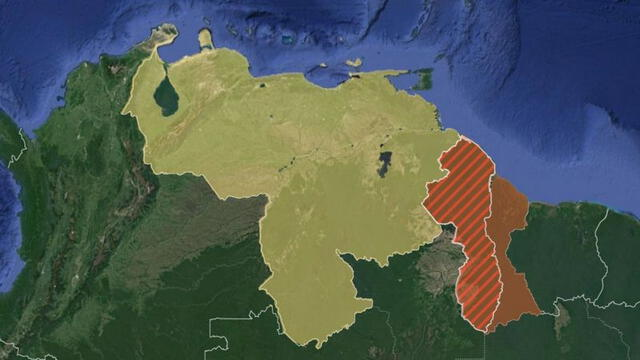
United Nations, February 13.- The Secretary General of the United Nations (UN), António Guterres, assured that recent events on the border between Guyana and Venezuela could intensify tensions between the two countries.
The UN chief called on both nations to resolve their differences by peaceful means in accordance with international law and to refrain from any action that could aggravate or expand their dispute.
Guterres' spokesman, Stéphane Dujarric, recalled the commitments made by the two governments in the Argyle Declaration, signed in December of last year.
It is very important that these commitments are implemented, the spokesperson said in his usual briefing.
The instrument signed in Saint Vincent and the Grenadines agreed that any dispute between states would be resolved in accordance with international law, including the 1966 Geneva Agreement.
The Venezuelan president, Nicolás Maduro, and his Guyanese counterpart, Irfaan Alí, agreed that they will not threaten each other - directly or indirectly - or use force against each other under any circumstances, including those derived from any existing dispute between both countries.
However, in recent days, the Caracas authorities warned of the interest of the American oil company Exxon Mobile in seizing and illegally exploiting a maritime area belonging to Venezuela and an undelimited sea with Guyana, as its president, Alistair Routledge, recently revealed.
Venezuela announced that it would reserve the use of all diplomatic actions and measures available within the framework of international law, to guarantee its sovereignty both in the Venezuelan area and in the maritime zone pending delimitation with the neighboring nation.
On December 1, the International Court of Justice asked both parties to avoid actions that complicate the current differences and notified that Venezuela must refrain from taking any measure that could modify the situation that currently prevails in the disputed territory, while Guyana administers and exercises control over that area.
The controversy over Essequibo, a region of almost 160 thousand square kilometers, escalated in December with the Venezuelan side denouncing tenders to transnational oil companies in undelimited waters and the holding of a referendum on the issue. Following the results, the Parliament of Caracas approved the Organic Law Project for the Defense of Guayana Esequiba which proposed, among other actions, the creation of a state with that name.
Guyana, for its part, described the plebiscite as a direct threat to the territorial integrity, sovereignty and political independence of the country.
However, shortly after, the leaders agreed not to escalate the conflict and opted for dialogue. (PL) (Photo: Taken from the Internet)